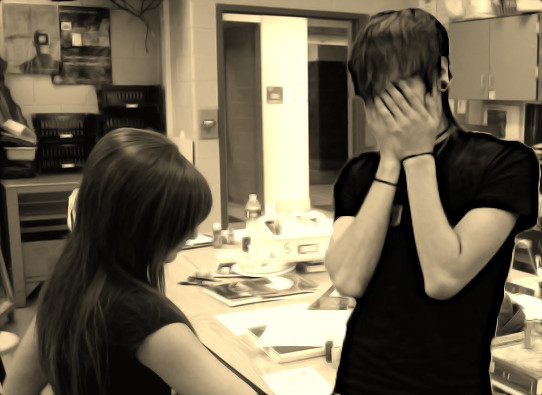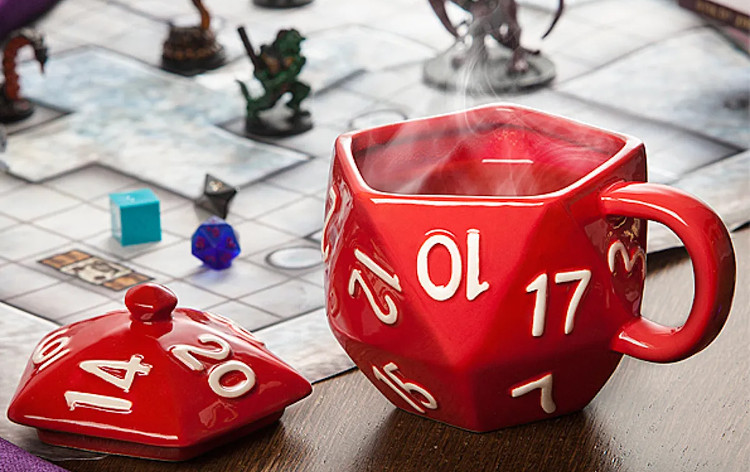GMs use “it’s what my character would do” as shorthand for selfish, chaotic players disrupting the game and blaming their characters. Well, in what is probably my most controversial tabletop gaming opinion, I think “it’s what my character would do” gets a bad rap. In my ideal campaign, every player would do what their character would do. However, that doesn’t mean every campaign in which the players do what their character would do would be good. Allow me to unwrap my complex feelings toward “it’s what my character would do”.
At The Heart Of Roleplaying
Roleplaying games as we know them trace their origins to miniature war games. The simplest explanation is that one day a player said “what if, instead of following the most strategic orders, my miniatures did what their characters would do?” That blended tactical skirmish rules with dramatic narrative, with each player deciding the history and personality of one character in the game, and controlling their actions.
I glam on to that as the history of RPGs because it combines what I consider essential elements of the game: storytelling and stakes.
I love storytelling. As a GM, I love connecting the dots of the events of the game, weaving an intriguing story that uses the elements of the setting and story creatively and consistently. As a player, I love creating a unique personality that takes what the rules say my character can do and explores unexpected reasons they got that way.
None of which would matter if the game didn’t have stakes. It’s usually life or death, or evil winning in the games I play, but I enjoy less dire stakes as well. I worked on the upcoming My Little Pony Roleplaying Game, after all. But I lose interest in storytelling for storytelling’s sake. An improv game can be fun, but I lose interest if the character I’m playing doesn’t have anything to want or care about.
What’s My Motivation?
Not just a joke about theatre types! Honestly, as a TTRPG gamer and as a writer, the idea that asking for motivation is somehow pretentious or unnecessary makes me sad. Motivation justifies plot twists, moves the action forward, and creates engaging relationships. It’s the reason backstories exist. “It’s what my character would do” is the RPG equivalent of “what’s my motivation?”
A lot of GMing articles on table management offer advice on creating hooks that interest our players, keeping our players engaged, and moving the plot forward. The easiest way to accomplish all of that is to plan a campaign that reflects the character’s motivations. Because regardless of what we want our campaigns to be, we create them with the players. Put mathematically:
GM plans + player actions + rules and dice = The TTRPG Experience
Character motivations direct player actions, so understanding what their characters would do makes the plans we make closer to the campaigns we ultimately create with them.
The Anti-Meta
To me, immersive roleplaying makes the best game experience. I don’t want my players to undermine how I’ve described the monster in the room because they know I would never put them against a monster they couldn’t beat. Because 1. I might, if it makes the most sense contextually and they put themselves in this situation, and 2. that spoils the fun.
Metagaming is just how some players engage with the game, leaning closer to its tactical miniatures game roots than what I consider the best parts of the game. And I’ve GMed and played with such players and had a great type despite the clash in how we approach the game. But between a player who scoffs at my dragon because they know its stats and a player who flees from my dragon despite knowing its stats, I’d choose the player doing what their character would do every time.
If You Have To Say It
As a player, I go into every game with a strong sense of my character. If you listened to the Troubles In Otari actual play Jason Keeley ran myself, Perram, Alex, Dustin, and Jessica through, you might remember a moment later in the adventure that went something like this:
ALEX’S CHARACTER: Can I get in the room to ask some questions?
MY CHARACTER: No.
And then we all laughed. Why did that get a laugh and not a gasp as one player told another they weren’t allowed to participate in a scene?
Because it’s what my character would do. And it’s what Alex’s character would do. But most importantly, it’s what we both established is what our characters would do.
Alex was basically a student on a school trip. I was an adventuring entrepreneur (an adventurepreneur) funding the trip. He’d played up his naivety, and I’d played up my sternness. So that moment wasn’t a player bossing another player around. It also wasn’t just players doing what their characters would do. It was players paying attention to what each other’s characters would do and playing into it.
Read The Room
Just like we create our campaigns with the input of our players, my fellow GMs, everyone at the table impacts the play experience we collaboratively create. I’ve made and changed characters that didn’t fit the dynamic of the table. The Abomination Vaults campaign Vanessa’s running is a great example. Blister, the dwarf sorcerer I made, was serious, contemplative, on a philosophical journey. Everyone else made a light, fun, playful character. After a few sessions, I talked to Vanessa and we wrote that character out of the campaign. Now, I’ve also talked about how mechanically Blister was virtually unplayable, easily my worst Pathfinder 2e build. But I’ve forgiven builds that weren’t working in the past if it meant a character I enjoyed playing.
However, I wouldn’t continue to play a character I knew the rest of the group didn’t like me playing. I’ve played a fair number of annoying characters -Karkerkast, a jerk; Azaul, a wild card; Valter, also a wild card; Stern, a strict pragmatists- but only ever in home games. My organized play characters tend to be enthusiastic, curious, goofy, and agreeable. The closest I’ve come to a disagreeable PFS character was Jaymon, my staff magus whose personality was as blunt as his weapon of choice. But Jaymon was still easily to get along with.
As a player, if I need to explain that I’m doing what my character would do, I’ve failed to either establish my character’s personality, motivation, and behaviour, or I’ve created a character whose behaviour runs counter to the enjoyment of the group. Different players play the game in different ways and for different reasons, and everyone at the table needs to make room to allow everyone to find their fun. That means both asking others to consider why you play the game this way, and other times that means considering how the way you play the game affects others.
For now, I dream of GMing more tables where every player does what their character would do.
Every two weeks, Ryan Costello uses his experience as a Game Master, infused with popular culture references, to share his thoughts on best GMing practices to help his fellow GMs. Often deconstructing conventional wisdom and oft repeated GMing advice, he reminds his fellow GMs that different players play the game in different ways, and for different reasons.





